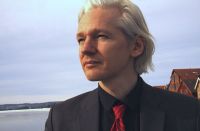On Sunday, Mexicans will head to the polls to vote in an election that is guaranteed to transform front-line Mexican politics. After several failed attempts at winning the Presidency, leftist/populist stalwart Andres Manuel Lopez Obrador (known affectionately as AMLO) looks to steamroll to victory on the 1st of July as even many of his opponents are tacitly admitting that AMLO is an effective shoe-in for the Presidency and that the most they can do is try to limit the numerical size of his victory.
Throughout the campaign, AMLO filled town squares and football stadiums with supporters who have clung to his anti-corruption, anti-oligarchic, anti-Trump and anti-crime message more readily than in previous years. Where AMLO continues to be portrayed as a dangerous maverick by establishment parties and politicians with many likening him to a Mexican version of Venezuela’s revolutionary President Hugo Chavez, the comparisons seem to have backfired as the status-quo of neo-liberal Mexican leaders is being held increasingly responsible for the country’s crime epidemic, narco-gangster epidemic and a stagnating economy in which wealth is widely viewed to be distributed unevenly and unfairly.
While AMLO’s anticipated victory would have likely been assured even without the appearance of Donald Trump as President north of the infamous border, AMLO’s leftist populism serves as the perfect contrast to Donald Trump’s specifically anti-Mexico conservative populism.
But while AMLO has been a passionate opponent of Trump’s quest to tighten border controls, AMLO finds himself on the same side as Donald Trump when it comes to a distaste for the North American Free Trade Agreement (NAFTA).
With Trump rejecting free trade from the perspective of economic-nationalism and AMLO rejecting it because he feels that poor Mexican farmers cannot compete with the highly mechanised industrial farms in the US - Trump’s desire to either reform or axe NAFTA will be one step closer if AMLO becomes the next President of Mexico.
At present, Trump’s hostility to NAFTA has been rejected both by arch neo-liberal Justin Trudeau, the Canadian Premier, as well as the current centre-right and deeply unpopular Mexican President Peña Nieto. Thus, however odd it might sound, the anti-Trump AMLO and the US President described by many of his critics as anti-Mexican might actually be able to come together in order to either reform or amicably agree to downgrade or otherwise scrap NAFTA entirely.
As for AMLO’s other policies, if as many suspect he will be less tax friendly to foreign companies locating some of their production operations to Mexican soil, it could score another goal for Trump as the current US leader has frequently criticised major American brands who look to take advantage of cheaper Mexican labour and produce their goods south of the border. In turn, this could lead to a new role for China in Mexico as Beijing’s model of working with poorer nations on bespoke trade and investment deals is typically viewed more favourable by leftists and populists than the zero-sum/all or nothing format the US tends to employ when making trade agreements.
While AMLO has not revealed a great extent of the specifics behind his economic policies, leaving some to accuse him of being a closet Bolivarian socialist while others insist he may disappoint his leftist supporters by maintaining a free market but with more crackdowns on corruption that violates existing laws - if he does anything to make American companies nervous about the state of their assets in Mexico, Trump would clearly seize on this as an opportunity to tell these business to “come back to the USA”.
While the 2026 World Cup being jointly hosted by the US, Mexico and Canada could be a motivation to keep NAFTA in place, the likelihood of a reformed NAFTA wherein Trump and AMLO could trade economic concessions for some sort of agreement on border issues, may be a scenario which one way or another unfolds in future months.
This could interestingly put Mexico and the US on the same page regarding trade, leaving Canada isolated in North America as a proponent of NAFTA as presently constituted. As Donald Trump seems to enjoy meeting with foreign leaders who oppose some if not most of his agenda more than he likes meeting traditional US allies who haven’t yet come to terms with the absence of Barack Obama, it could be that like Kim Jong-un before him, AMLO could be an unlikely partner of Trump, especially due to the fact that neither man is shy about voicing disagreements without restraint - a quality that Trump seems to respect even in those who come from entirely different political backgrounds to his.
While it remains to be seen whether AMLO will run to the Bolivarian left or instead adopt the centre-left populism of former Brazilian leader Luiz Inácio Lula da Silva, what is certain is that Mexico’s relationship with NAFTA is going to be more similar to Trump’s than Trudeau’s, where even on the border issue, AMLO might offer Trump the robust sparring partner that he respects far more than the overly rehearsed and urbane outdoing President Nieto.



